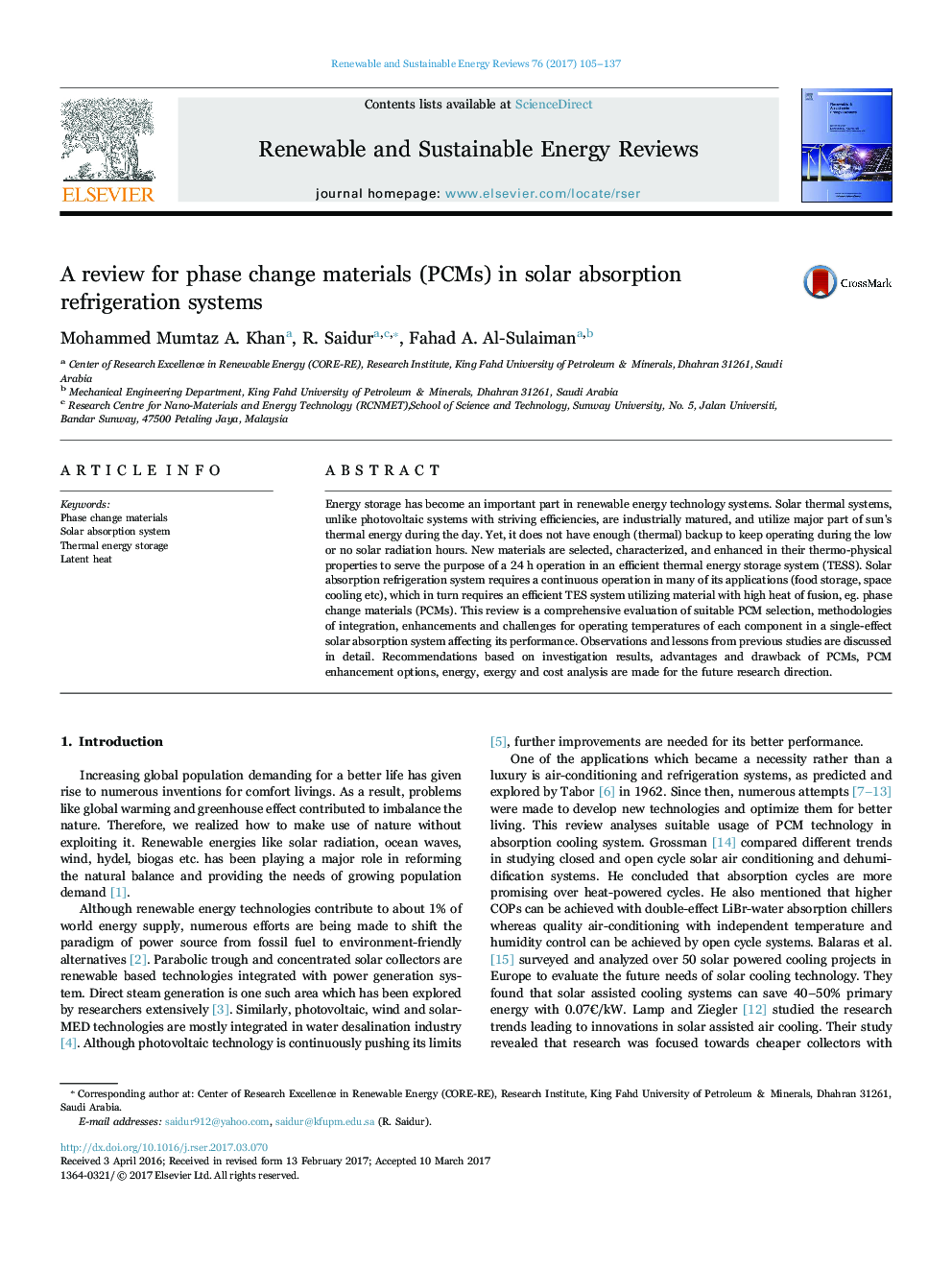| Article ID | Journal | Published Year | Pages | File Type |
|---|---|---|---|---|
| 5482148 | Renewable and Sustainable Energy Reviews | 2017 | 33 Pages |
Abstract
Energy storage has become an important part in renewable energy technology systems. Solar thermal systems, unlike photovoltaic systems with striving efficiencies, are industrially matured, and utilize major part of sun's thermal energy during the day. Yet, it does not have enough (thermal) backup to keep operating during the low or no solar radiation hours. New materials are selected, characterized, and enhanced in their thermo-physical properties to serve the purpose of a 24Â h operation in an efficient thermal energy storage system (TESS). Solar absorption refrigeration system requires a continuous operation in many of its applications (food storage, space cooling etc), which in turn requires an efficient TES system utilizing material with high heat of fusion, eg. phase change materials (PCMs). This review is a comprehensive evaluation of suitable PCM selection, methodologies of integration, enhancements and challenges for operating temperatures of each component in a single-effect solar absorption system affecting its performance. Observations and lessons from previous studies are discussed in detail. Recommendations based on investigation results, advantages and drawback of PCMs, PCM enhancement options, energy, exergy and cost analysis are made for the future research direction.
Related Topics
Physical Sciences and Engineering
Energy
Renewable Energy, Sustainability and the Environment
Authors
Mohammed Mumtaz A. Khan, R. Saidur, Fahad A. Al-Sulaiman,
